17 High Protein Vegetarian Meals (+how much protein do we need anyway?)
Everything you need to know about protein intake as a vegetarian, including a collection of 17 high protein vegetarian meals!
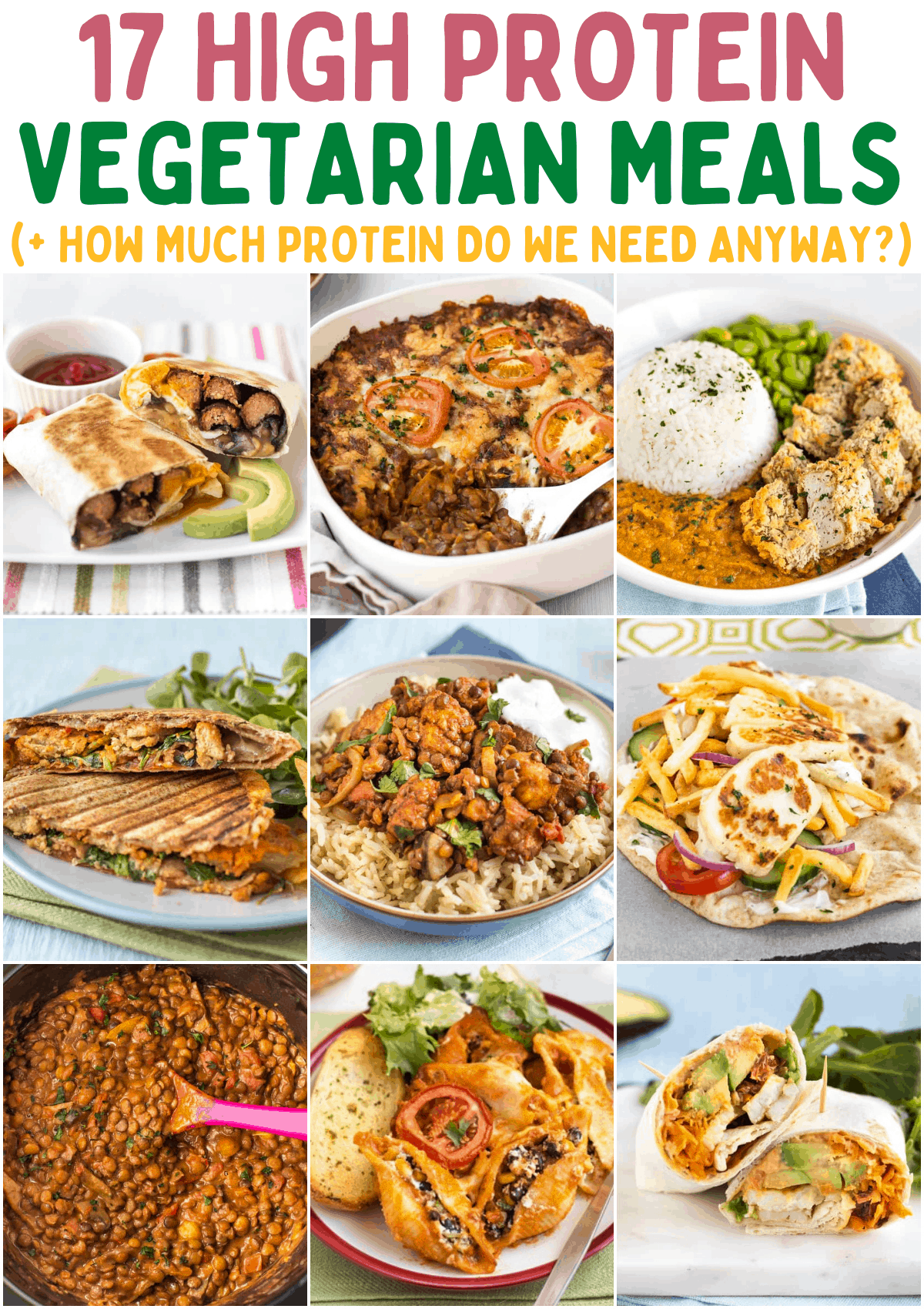
As soon as you tell someone you’re a vegetarian, they seem to become very concerned about your protein intake. Sure, protein is hugely important for our bodies, but there’s a bit of a misconception that protein only comes from meat and fish – which, of course, isn’t true at all! We vegetarians eat plenty of protein, from all sorts of different sources.
Okay, it’s true that vegetarians might need to be ever so slightly more mindful of their protein intake than meat-eaters. But really, only a tiny bit. As long as you eat a balanced diet, it’s usually not an issue at all.
In case you need more convincing, I thought I’d write a bit about vegetarian protein. Hopefully all the high protein vegetarian recipes I’ve listed below will help convince you (and anyone else who’s questioning your diet!) that it’s truly not that difficult to eat plenty of protein as a vegetarian.
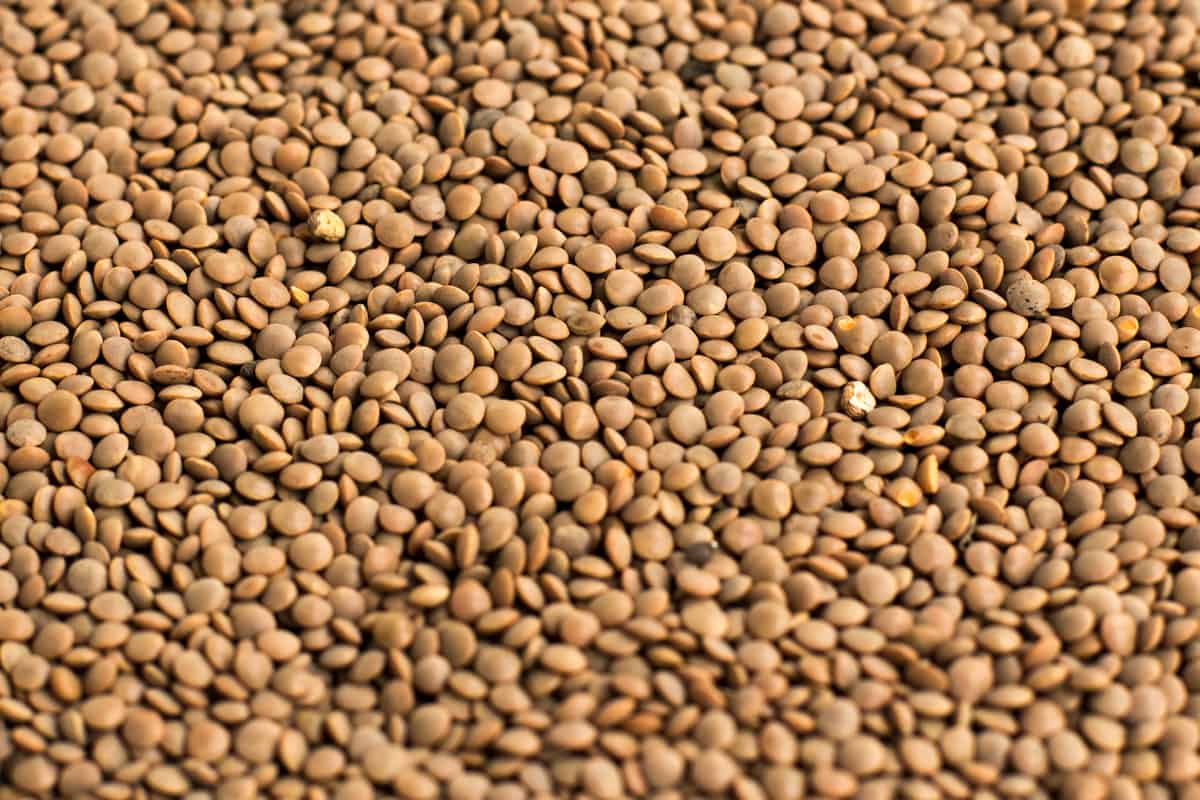
How much protein should you eat?
Firstly – how much protein should an average adult actually be eating? There’s no point in telling you that a meal contains 30 grams of protein, unless you know how much protein we’re actually meant to aim for. Is 30 grams a lot or a little?!
Obviously, all bodies are different, so there’s not one simple answer to the question of how much protein we should eat. There are various ways to determine how much protein you should be eating – you can see a few different methods detailed here.
If you can’t be bothered to do any calculations, the NHS recommends a very rough daily intake of 50g protein.
Or, if you want something a bit more personalised, I think the simplest method is to calculate a number to aim for each day, based on your own body.
Most adults need to eat at least 0.8 grams of protein per kilogram of body weight, every day. One kilogram is the same as 2.2 pounds, so if you only know your weight in pounds, divide by 2.2 to get your weight in kilograms.
So, as an example: A fairly average female weight is around 150 pounds, or 68 kilograms. Multiply 68 by 0.8, and you’ll find that this person would need to aim for at least 54.4 grams of protein each day.
Of course, this number is only an estimate. If you’re very active, or are aiming to build muscle, you’ll probably want to eat a bit more protein. Or if you weigh more or less than the example, your body will require more or less protein. Calculate your own number based on your weight, and adjust for your activity level if needed.
Use this number as a general guide – it’s not the end of the world if you don’t hit it every single day, as long as it averages out over a week or so.
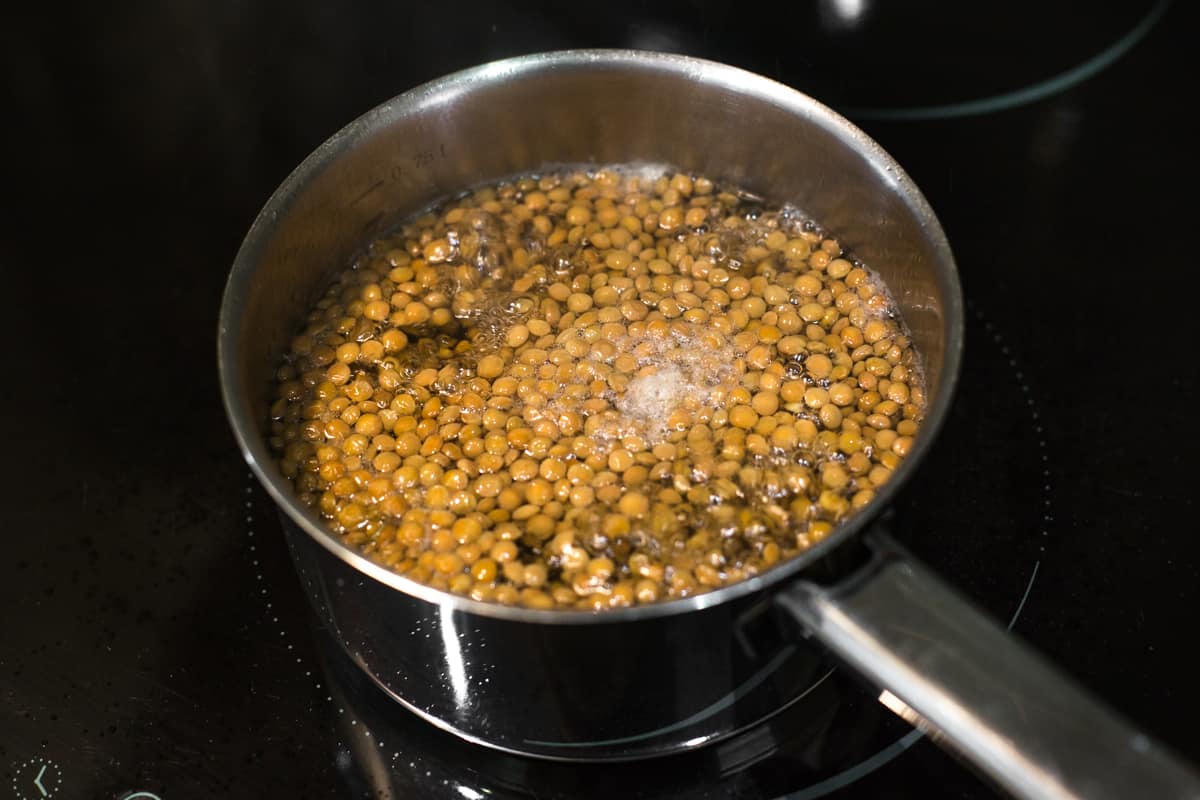
How do vegetarians get their protein?
Meat and fish are usually the first things that spring to mind when most people think about protein – but there are plenty of vegetarian proteins too! We vegetarians are well versed in how to cook lentils, beans, chickpeas, tofu, cheese, and all sorts of other vegetarian proteins – not to mention ‘fake meat’ products, which are also super high in protein.
And, in fact, even foods that we wouldn’t necessarily describe as ‘a protein’ (let’s say, broccoli) can still contain protein in smaller amounts. So even if you don’t have a specific protein element in every single meal you eat, as long as you eat a balanced diet, all of these smaller amounts of protein will add up.
What vegetarian foods are high in protein?
Here are some vegetarian sources of protein. I’ve included a few non-vegetarian items in the table too (in italics and brackets), purely for comparison.
| Food item | Protein per 100g |
| Half-fat cheddar cheese | 32.7g |
| (Grilled chicken breast) | (32g) |
| (Grilled lamb chop) | (29.2) |
| Cheddar cheese | 25.4g |
| (Canned tuna) | (23.5g) |
| Almonds | 21.1g |
| Walnuts | 14.7g |
| Wholemeal wheat flour | 12.6g |
| Cottage cheese | 12.6g |
| Eggs | 12.5g |
| Oats | 11.2g |
| Chickpeas | 8.4g |
| Tofu | 8.1g |
| Bread (brown or white) | 7.9g |
| Red lentils | 7.6g |
| Kidney beans | 6.9g |
| Pasta | 6.6g |
| Full fat yogurt | 5.7g |
| Semi-skimmed milk | 3.4g |
| Mushrooms | 3.1g |
As you can see, the meat-based items are generally higher up the table than the vegetarian protein sources. But, it’s not always as simple as that.
While a lot of meat-eaters would have a chicken breast with their dinner, and consider their protein sorted for the day, vegetarian meals generally contain more than one of these ingredients in the same meal.
For example, a vegetarian meal could easily contain cheese, eggs and chickpeas, which would add up to a considerable amount of protein overall.
As you’ll see in the high protein vegetarian meals I’ve featured below, it’s really not difficult for a vegetarian to eat the necessary amount of protein to stay strong and healthy.
High protein vegetarian meals
Finally – the recipes! For this recipe round-up, I’ve decided to highlight only recipes that contain more than 25 grams of protein per portion.
Most of the time, even 15 or 20 grams of protein would be enough for one meal. After all, once you’ve eaten 3 meals a day, and maybe even a snack or two, that will quickly add up. But I thought I’d be a bit stricter here, and set a slightly higher cut off, otherwise I’d end up just listing almost every recipe on the blog.
So, here you go – 17 high protein vegetarian meals, each containing at least 25g of protein per portion.
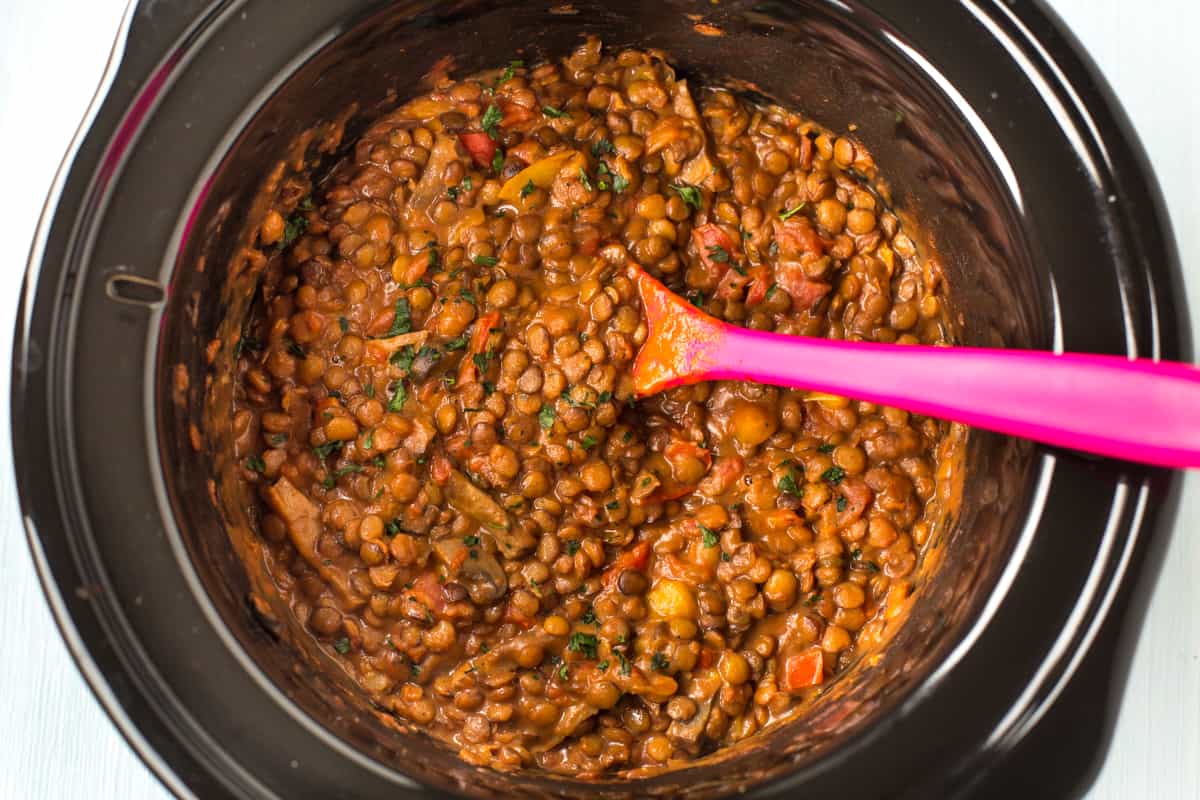
Cheesy slow cooker lentils – 37.5g protein per portion
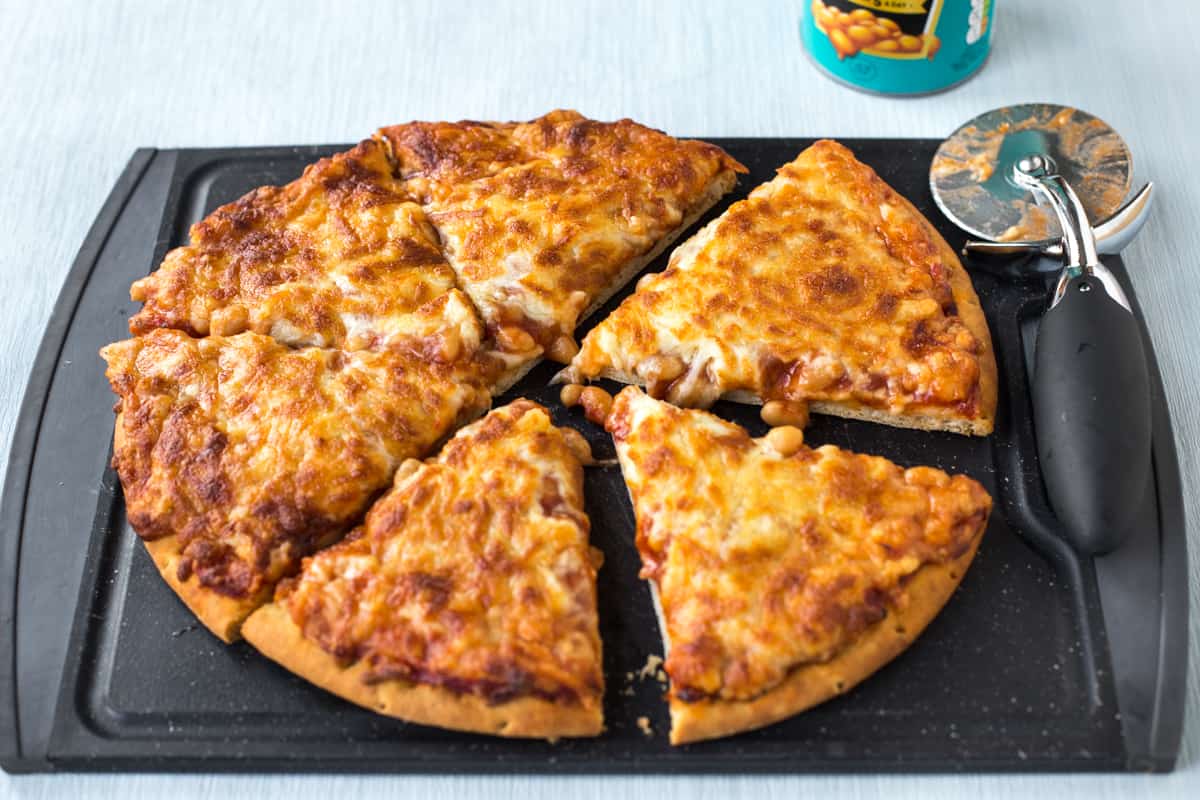
Baked bean pizza – 33g protein per portion
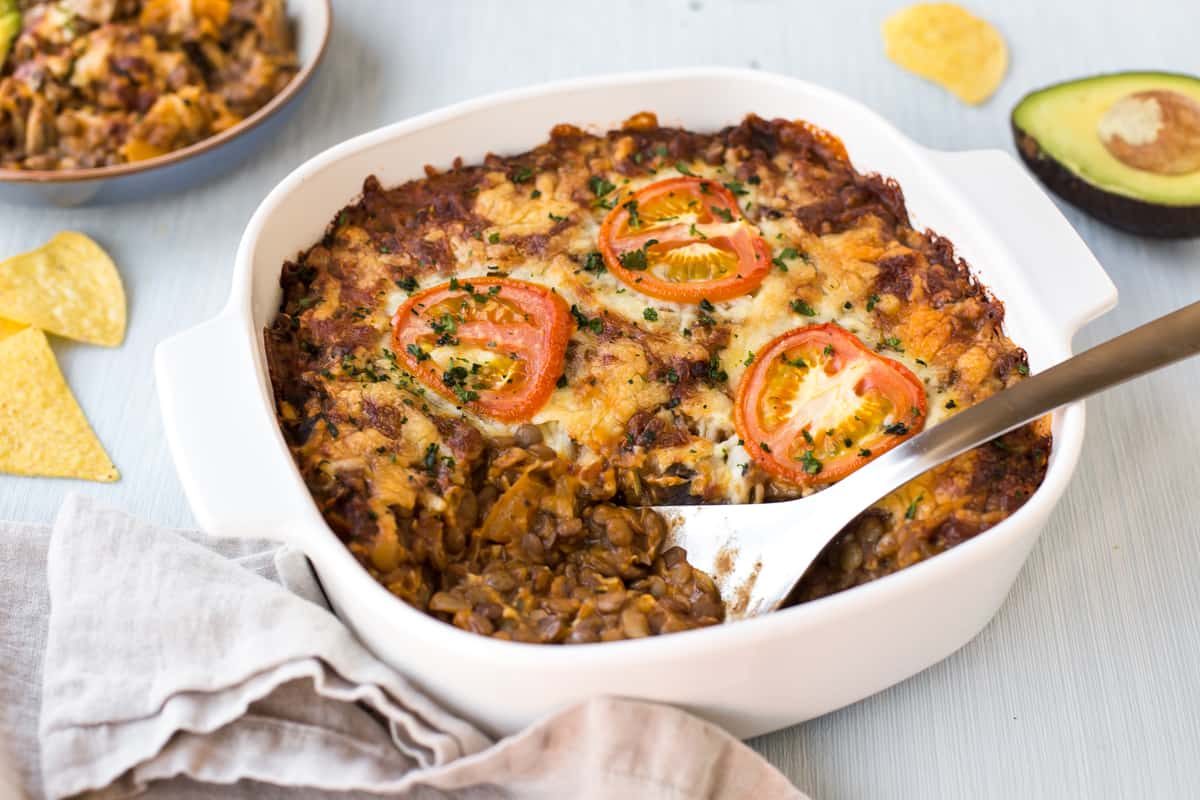
Enchilada lentil casserole – 42.5g protein per portion
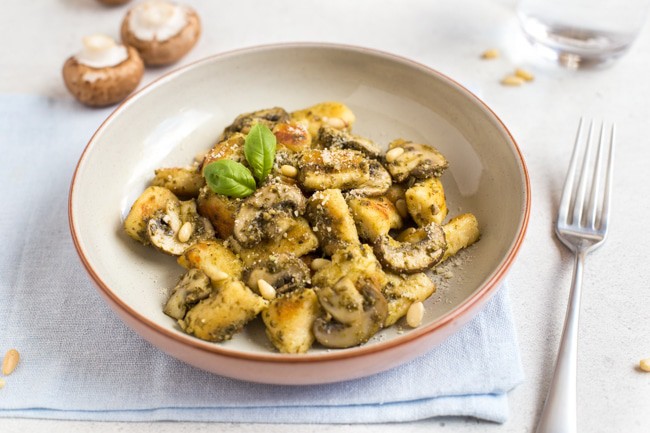
Homemade ricotta gnocchi – 25.9g protein per portion
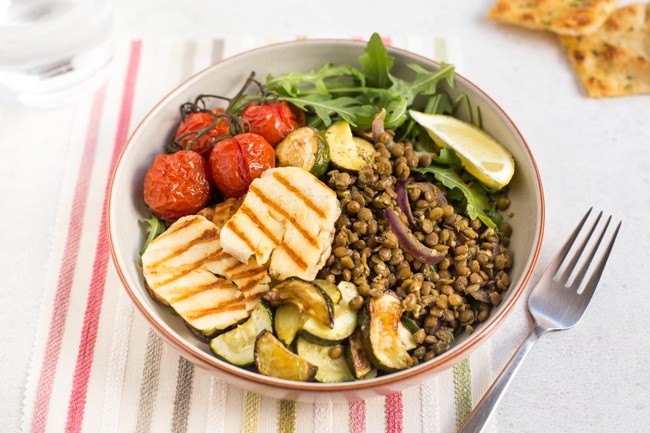
Warm lentil and halloumi salad – 36.7g protein per portion
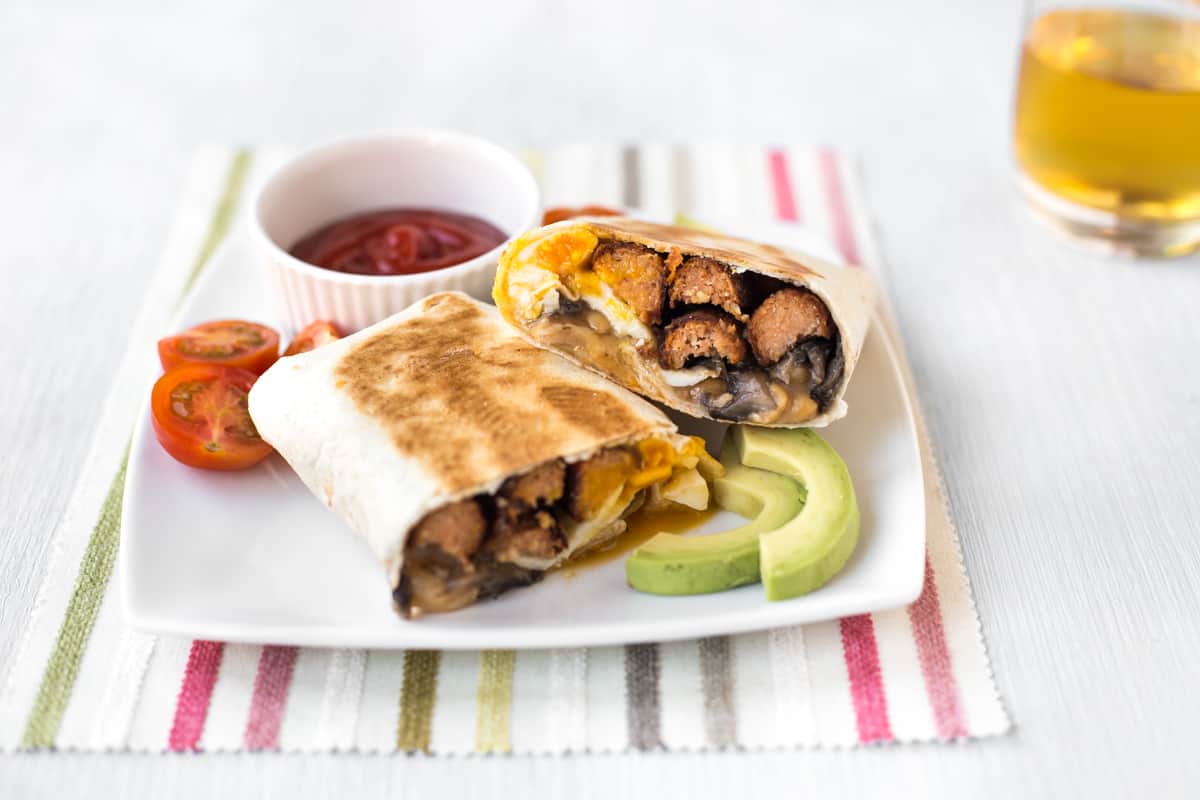
Full English breakfast burritos – 39.5g protein per portion
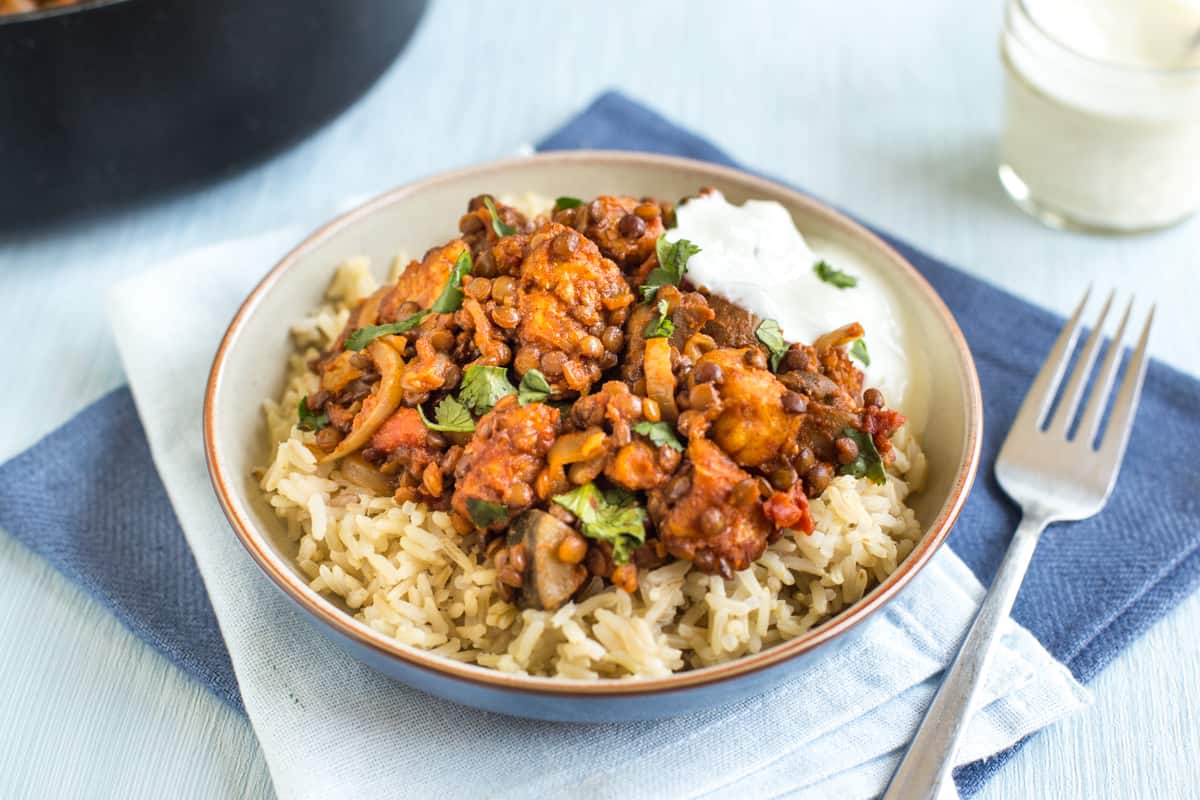
Lentil and halloumi curry – 27.5g protein per portion (plus rice)
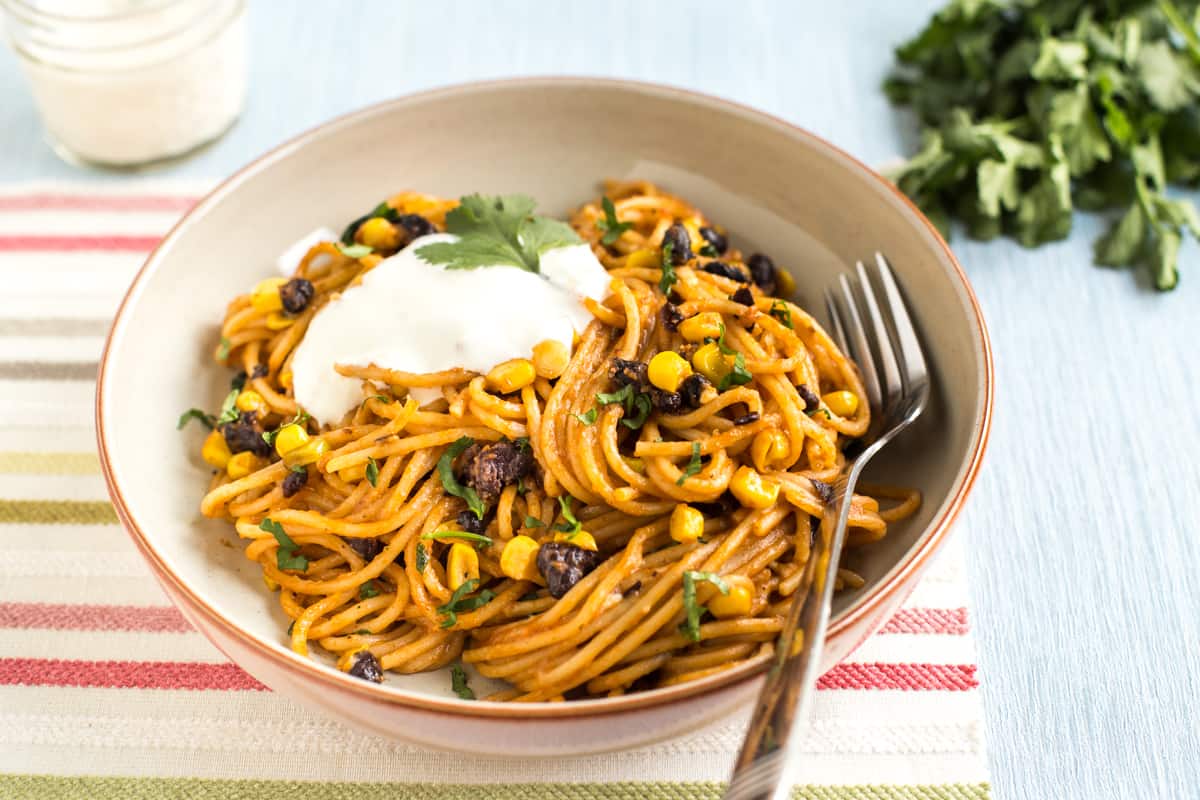
Enchilada noodles – 26.1g protein per portion
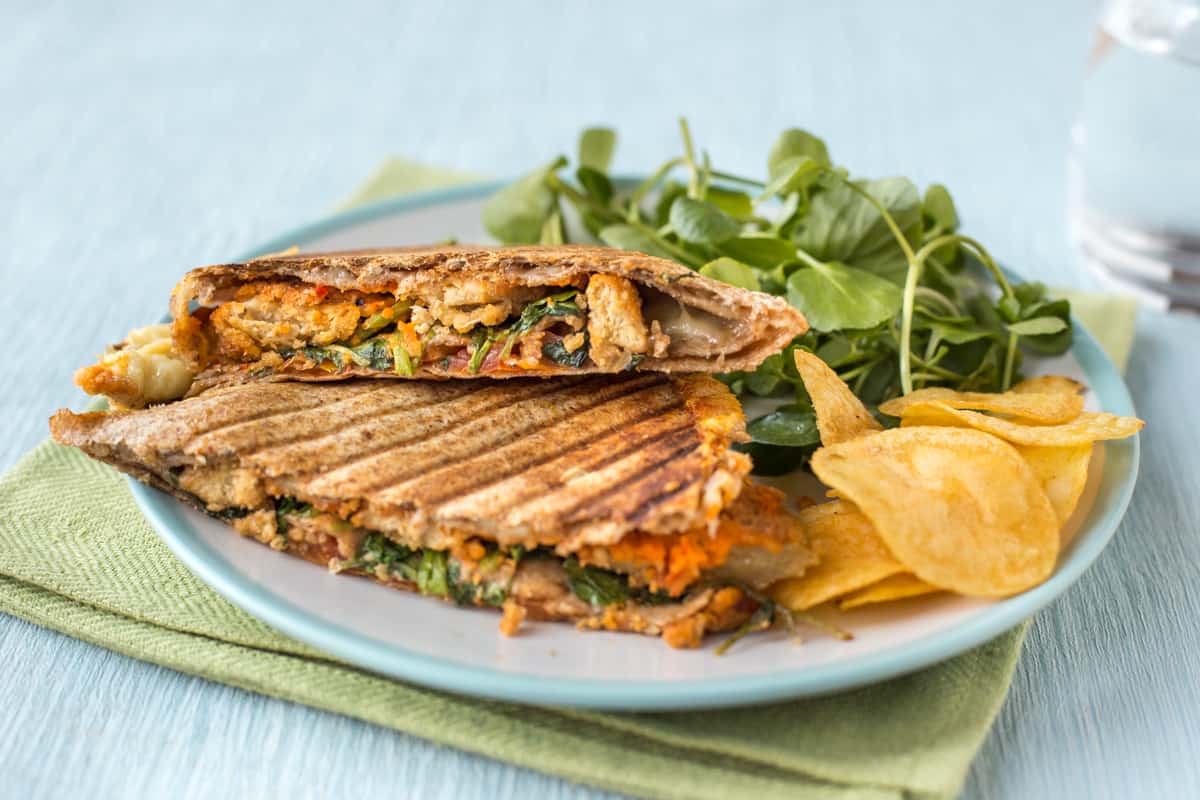
Layered tortillas – 31.5g protein per portion
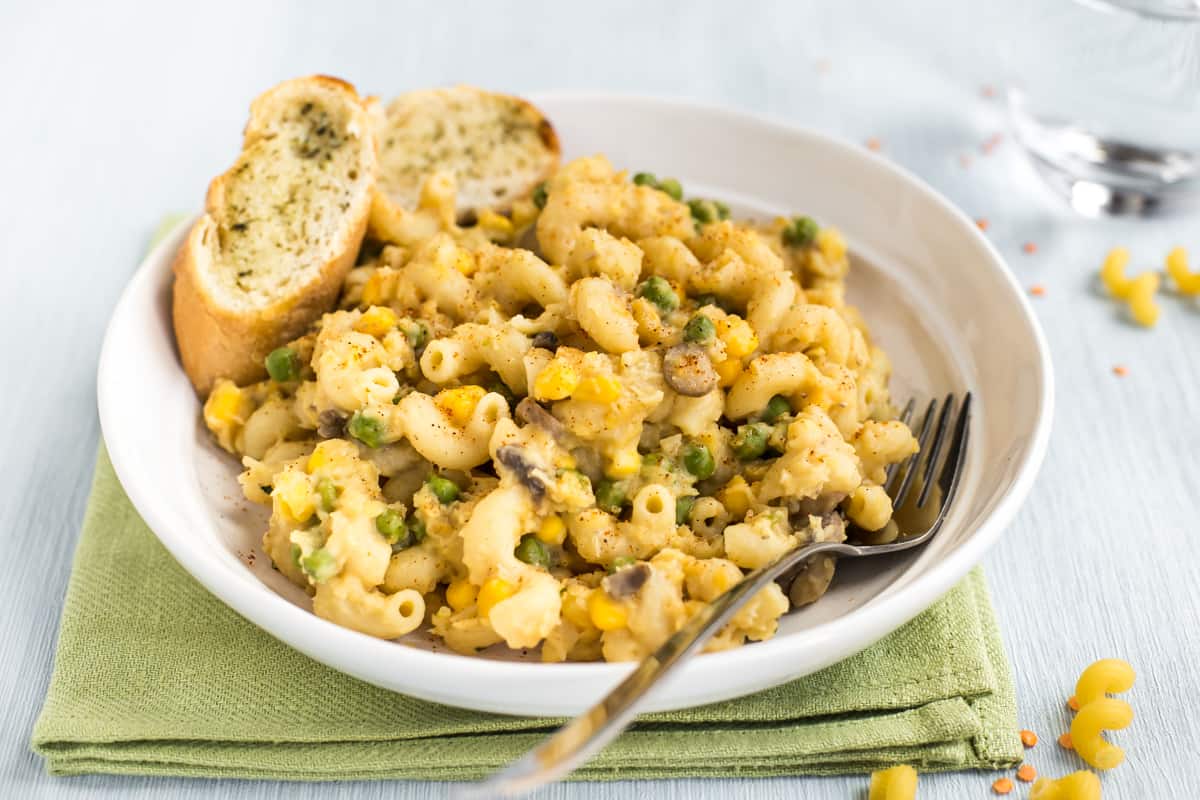
Cheesy lentil pasta – 35.7g protein per portion
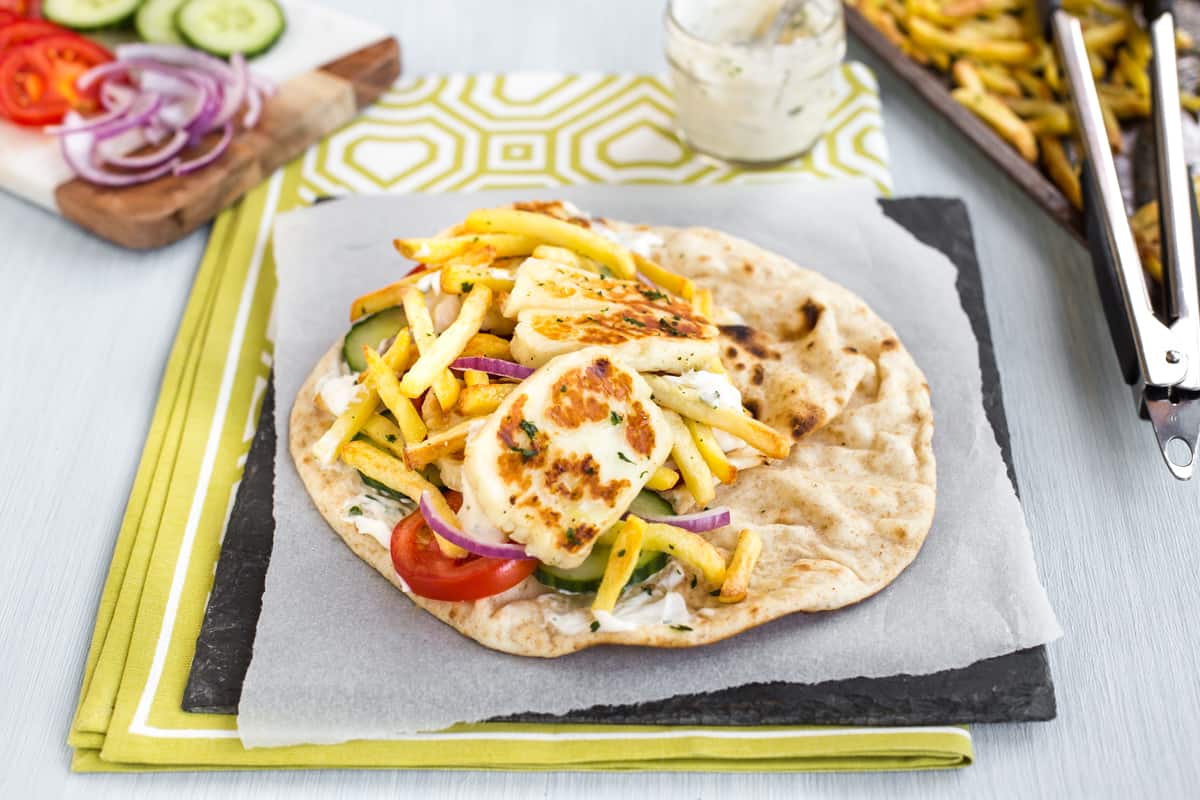
Vegetarian doner kebab with halloumi – 41.3g protein per portion
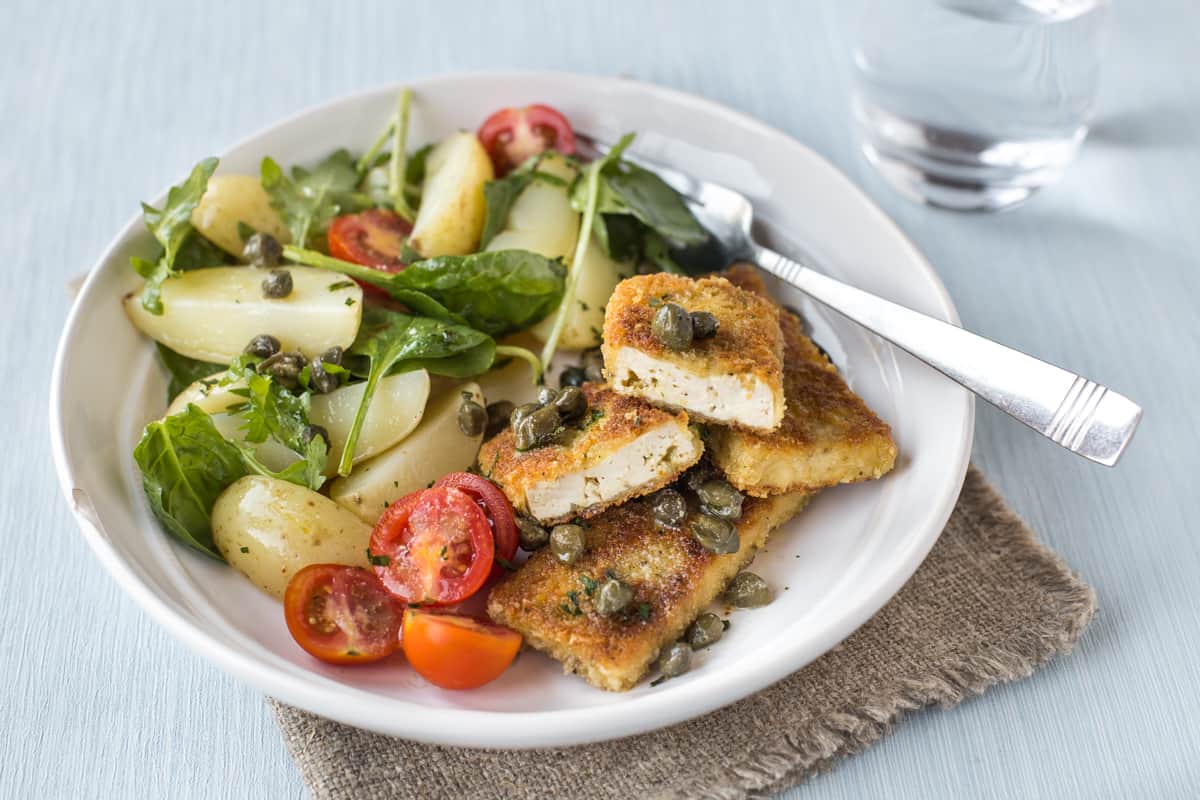
Crispy tofu escalopes – 28.2g protein per serving (plus side dishes)
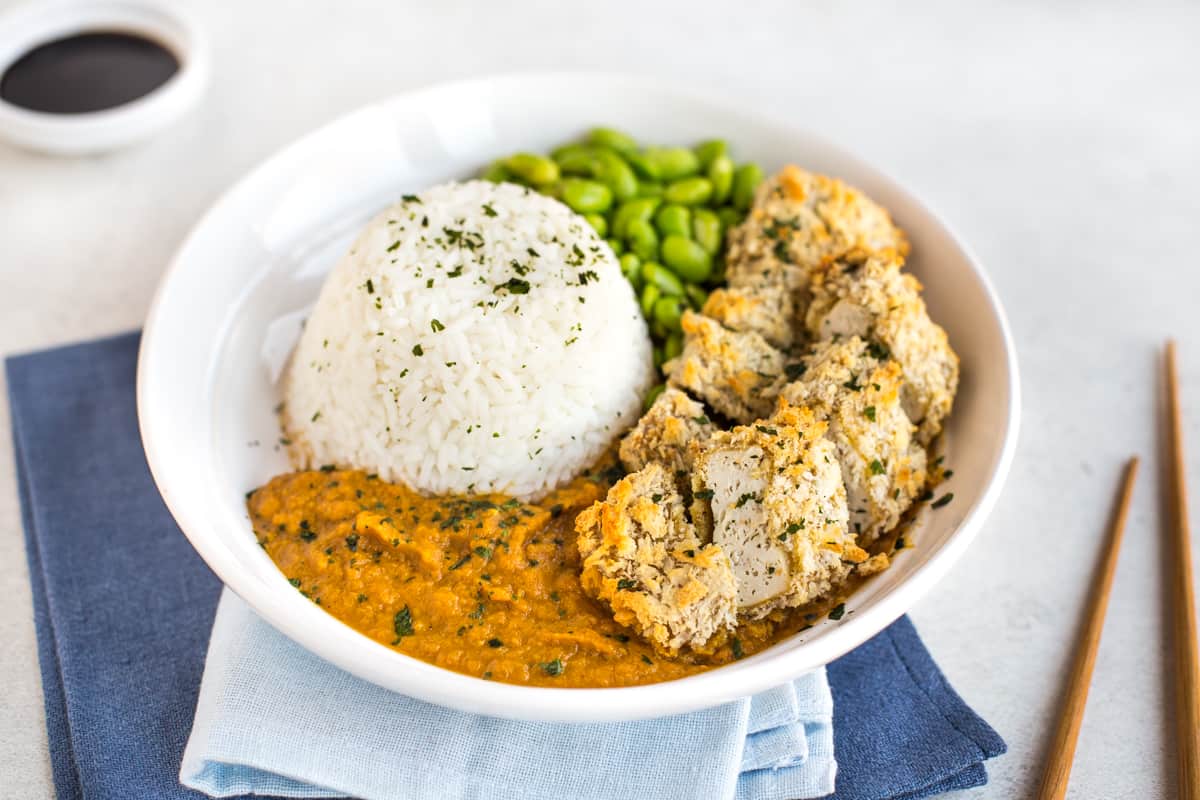
Vegan katsu curry – 32.9g protein per portion (plus sides)
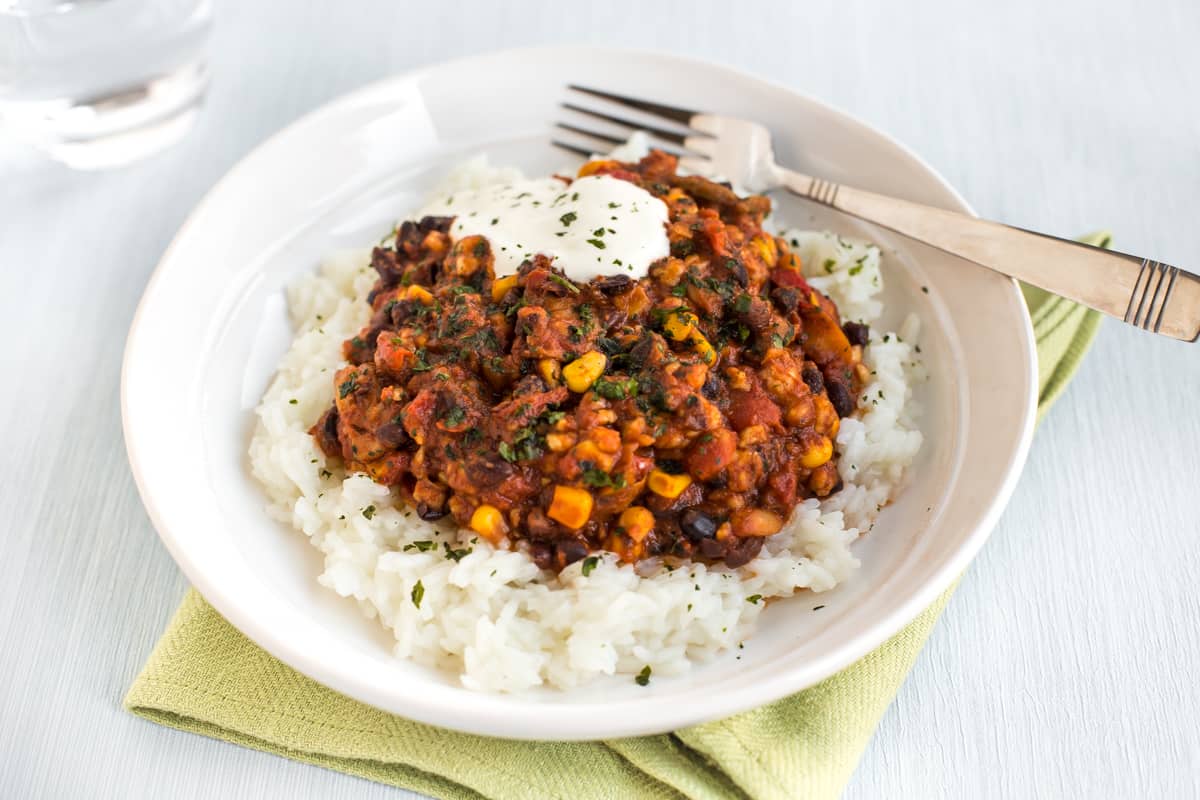
Black bean and halloumi chilli – 26.1g protein per portion (plus rice)
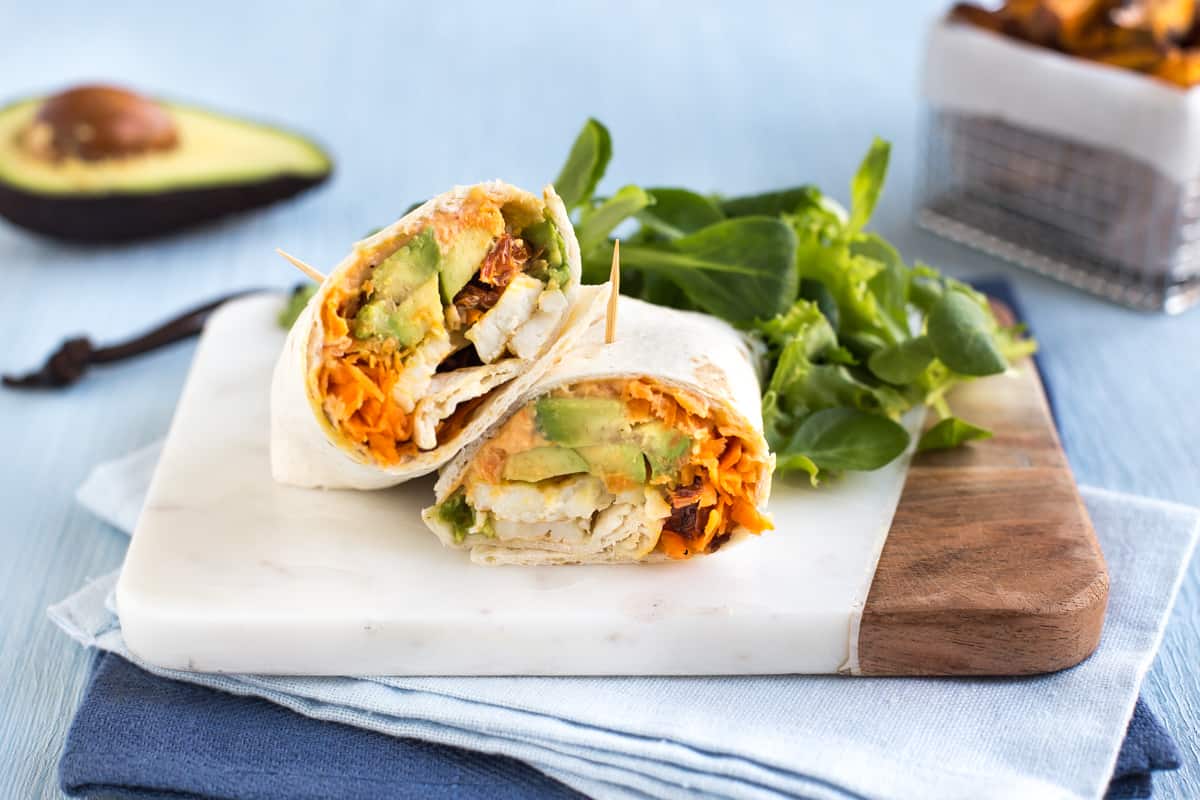
Avocado and halloumi wraps – 28.9g protein per portion
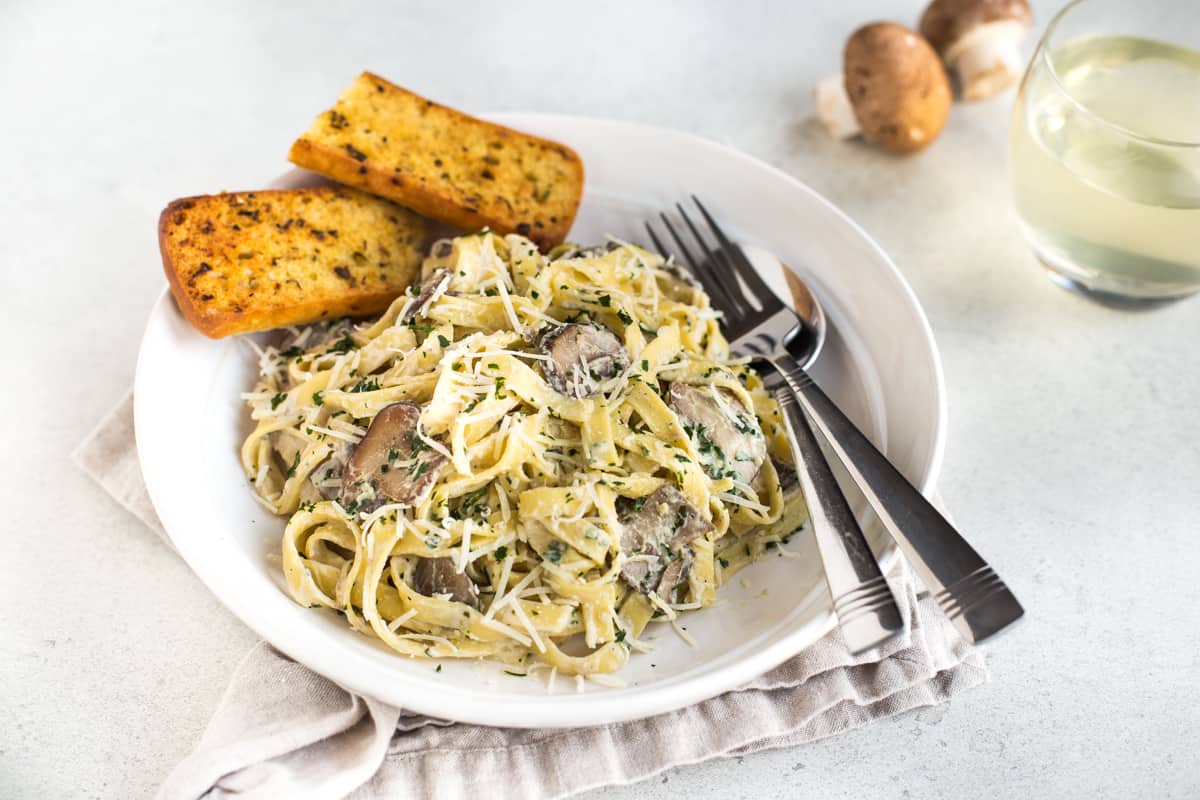
Creamy garlic mushroom tagliatelle – 27.2g protein per portion
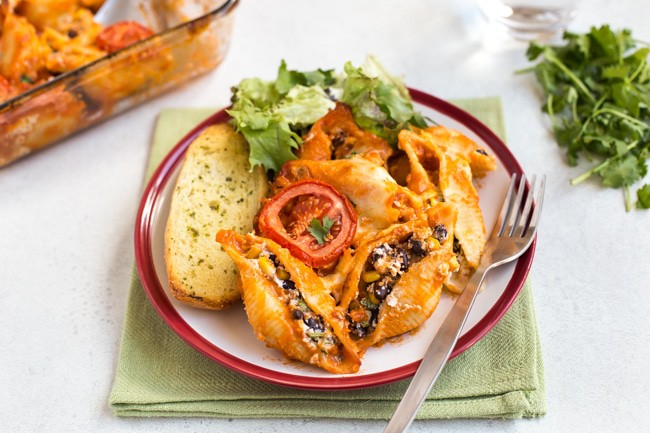
Enchilada stuffed pasta shells – 29.5g protein per portion
Well, there you are. 17 high protein vegetarian meals, which all contain at least 25 grams of protein each, per portion. Which would you make first? Have you ever worried about your protein intake as a vegetarian?
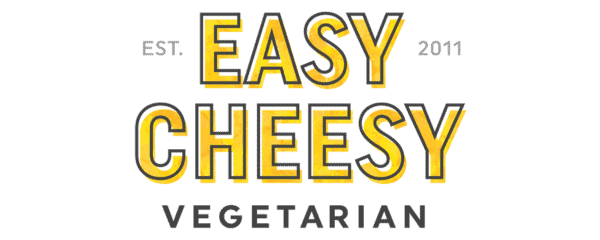
I had no idea how much protein we should be eating a day x
I’m not sure it’s vegetarians who need worry about their protein intake, so much as vegans, who don’t have the egg and dairy resources that most vegetarians do (and, indeed, many omnivores/flexitarians). And I understand that, while much of our protein intake does come from legumes, grains, etc, they do not all contain all the amino acids one needs, unlike dairy and eggs, so vegans do have to do a bit of a balancing act, and perhaps need to know more about the protein content and type of each kind of food than other people.
Oh absolutely, the more food groups you cut out of your diet, the more difficult it will be to get all the right nutrients. But I can only speak about vegetarianism, not veganism :)